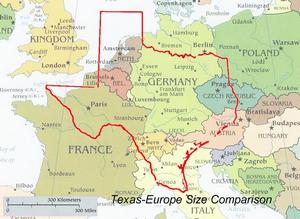Part 4 of 5 of the "What Americans Can Teach Europeans" series
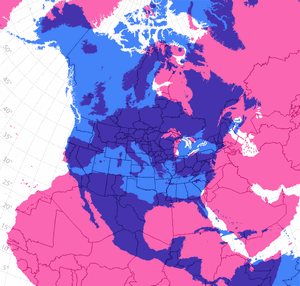 Americans are criticized for being ignorant of geography, languages, and the world in general.
Americans are criticized for being ignorant of geography, languages, and the world in general.
Let’s examine geography first. For example, someone from Slovakia often feels smart because he can name at least ten countries near him and explain what’s basically going on there. He says Americans are stupid because they can’t do this.
Humans are regionally focused. Today, for the average human, that radius of interest and knowledge might be 500 km. For someone in Nebraska, that means being able to name 10 states around him. For someone in Belgium, that means 10 countries. The level of geographic knowledge is effectively the same. Europe and the United States are roughly the same size. Although it’s true that a Nebraskan won’t find Belgium on a map, it’s also true that a Belgian won’t find Kansas on a map. And neither will find Togo or Cambodia. People are generally ignorant of anything that is beyond their geographic radius of knowledge.
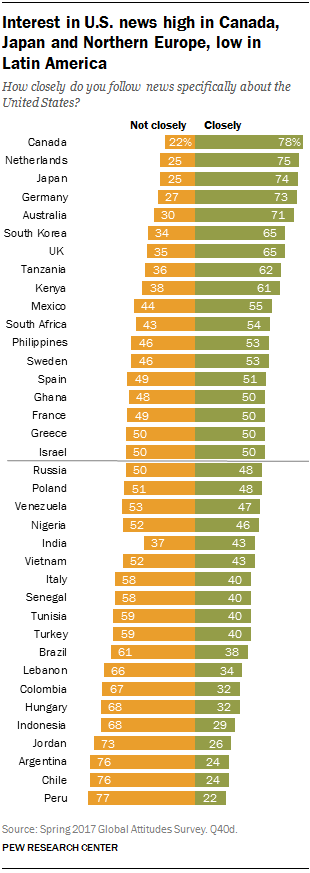 The same goes for being aware of what’s going on. The Nebraskan will know what’s going on in Iowa, Missouri, Indiana, and maybe California. Meanwhile, the Belgian will have an idea of the general affairs in Luxembourg, Denmark, Germany, and maybe Greece. They’re all about the same distance from each other; the only difference is one crosses country lines while the other crosses state lines. And, of course, the American won’t know what’s going on in those European countries, just like the European won’t know what’s going on in those particular American states. Americans won’t know about the floods in Romania any more than a Romanian will know about the tornadoes in Oklahoma.
The same goes for being aware of what’s going on. The Nebraskan will know what’s going on in Iowa, Missouri, Indiana, and maybe California. Meanwhile, the Belgian will have an idea of the general affairs in Luxembourg, Denmark, Germany, and maybe Greece. They’re all about the same distance from each other; the only difference is one crosses country lines while the other crosses state lines. And, of course, the American won’t know what’s going on in those European countries, just like the European won’t know what’s going on in those particular American states. Americans won’t know about the floods in Romania any more than a Romanian will know about the tornadoes in Oklahoma.
However, the European persists and says that Americans don’t know anything about world events, yet everyone knows what’s going on in America. One Latvian told me she was upset that she knows so much about America and Americans don’t know anything about Latvia. It was tough to break the news to her that Latvia’s physical, economic, and political size is insignificant. And it’s really painful to tell the same thing to the French. But it’s true.
Europeans know what’s going on in the US not because they’re more worldly and sophisticated, but because America has a lot of influence in their affairs. America knows little about individual European countries because not one European country has much impact on America (except for Britain or Russia). Most Europeans don’t know much more than Americans about what’s happening in Uruguay, New Zealand, and Namibia because those countries are both far and insignificant to them. And those countries don’t give a shit about all the tiny European countries either.
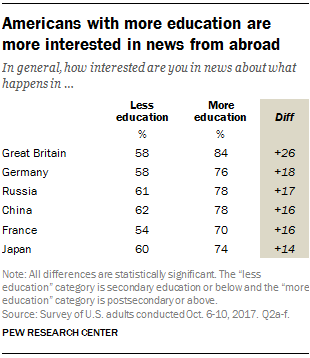 In addition, educated Europeans who do know lots of stuff about the world often compare themselves with non-educated Americans. They walk through New York and tell people, “Hi, I’m from Bulgaria, do you know where that is?” They’re horrified that New Yorkers don’t know crap about Bulgaria and conclude that Americans are geographically ignorant idiots, unlike the brilliant Bulgarians.
In addition, educated Europeans who do know lots of stuff about the world often compare themselves with non-educated Americans. They walk through New York and tell people, “Hi, I’m from Bulgaria, do you know where that is?” They’re horrified that New Yorkers don’t know crap about Bulgaria and conclude that Americans are geographically ignorant idiots, unlike the brilliant Bulgarians.
Meanwhile, a girl from Laos goes to Bulgaria and asks the people she meets, “Do you know where Laos is?” You can guess the response. Please compare an educated, well-traveled American with an educated, well-traveled European; or the American on the street with the European on the street. You’ll discover the difference isn’t that big.
Most who complain about these issues come from countries much smaller than the US. The smaller the country, the more they’re forced to look outside because they quickly exhaust the business and travel opportunities in their own country. Go live in Belgium and see how fast you get bored.
People who live in big countries can spend their whole lives there and not get bored. It’s not that we’re more stupid or have a bad education system (although both of these may be true), but it’s primarily because learning about a big country is complex enough.
Should Americans learn more about the world and its languages? Absolutely. We should all be flogged for our ignorance. And we should also flog ignorant people from other big countries like the Chinese, Brazilians, Russians, and the French. Why the French? Their country is smaller than Texas, so what’s wrong with that? Well, it’s always a good idea to flog the French whenever you get the chance.
In short, Americans are indeed ignorant about world affairs and it’s a shame given how much influence the US has globally. However, Europeans are also pretty ignorant about affairs outside of Europe (their geographical focus). They know about America and China because these two large economies influence everyone's life. Yes, Europeans know more about Africa and Asia than Americans, but Americans often know more about Central and South America than Europeans.
Another common criticism about Americans is that we don’t travel internationally. Again, scale distorts everything. A Hungarian feels well traveled because he’s been to 10 countries. However, most of them are probably near Hungary. If someone from Iowa logs the same miles as the Hungarian, she won’t even leave America. At best, she’ll have visited Mexico, Canada, or the Caribbean, which is what many Americans do. In other words, the Iowan might feel well traveled if he’s been to 10 US states. Each state in America is about the size of a European country: Germany is the size of Montana, Poland is the size of New Mexico, Slovenia is the size of New Jersey, Belarus is the size of Kansas, and Greece is the size of Alabama.
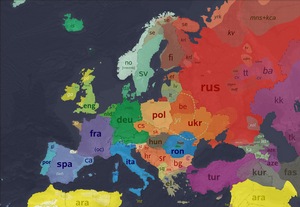 Americans are criticized for not speaking foreign languages. Geography explains quite a bit. The Netherlands is tiny and surrounded by countries that don’t speak Dutch. They don’t speak four languages because they want to. They do it because they have to. How much incentive you have to learn a foreign language depends on:
Americans are criticized for not speaking foreign languages. Geography explains quite a bit. The Netherlands is tiny and surrounded by countries that don’t speak Dutch. They don’t speak four languages because they want to. They do it because they have to. How much incentive you have to learn a foreign language depends on:
(1) the size of your country
(2) the pervasiveness of your language.
For instance, Americans rarely speak foreign languages well because we’re a huge country and English speakers are everywhere. Russians and Chinese speak foreign tongues as well as Americans—yeah, that bad. Neither of these big countries with their pervasive languages has much incentive to learn anything else. Slovenians live in a tiny country and few outside their country speak Slovenian, so they must learn multiple languages. It’s not that Americans are stupid or Slovenians are smart. Everyone is just practical.
Furthermore, most Europeans can speak only their native language. My favorite pastime is asking Europeans if they speak a foreign language. The results are dismal. The true polyglots come from countries where just a few million people speak their language (e.g., Andorra, Slovenia, and Nordic countries).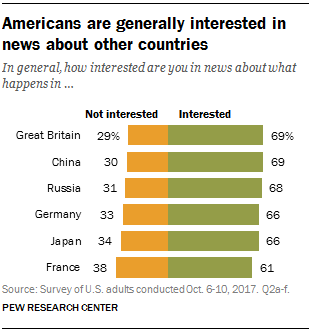
Finally, ignorance often goes hand-in-hand with being provincial, and Europeans are far more provincial than Americans. Wherever you are in Europe, ask the people you meet where they’re from. The answer is almost always the same: “I’m from here.” They were born and raised in the town you meet them in, they still live there, and they have no plans to leave. Stanford University researchers have found a strong correspondence between the genetics and geographical origins of Europeans. In fact, 90% of Europeans live within 700 kilometers (435 miles) of where they were born, and 50% to within 310 kilometers (193 miles).
Ask the same question in America, and you’ll rarely get such an answer—people are usually immigrants, even if it means moving from Chicago to Miami. In San Francisco, people are often shocked when I tell them that I was born and raised there. “Wow, I’ve never met someone who was born here! You’re a native!” They make it sound like if I were a Native American. Because Americans move around much more than Europeans, Americans are less provincial than Europeans.
In fact, Europe is so ridiculously provincial that most of their countries are far from united. Spain and Switzerland each have four language regions in their small countries. That alone discourages them from moving around within their country, and the idea of moving a few hundred kilometers to live in a neighboring country is scary. Italians are so regionally focused that they hardly know what is happening on the other side of their local hill. One reason so many strong European dialects persist is that people refuse to venture far. Eastern Europeans are filled with so many prejudices about people who live just a few hundred kilometers away because they’ve spent so little time there. Instead, they find jobs locally, marry locally, and die locally.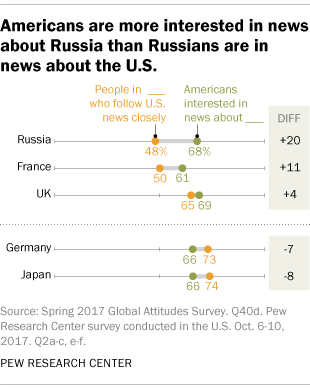
Conclusion
I’m embarrassed that Americans are so poorly traveled and so bad at geography and languages. Although other big countries aren’t much better, they usually are better. And yes, Europeans do know more about geography and world affairs than most Americans. However, the difference is not as big as Europeans like to believe. Moreover, I wish American media devoted as much time to news from developing nations as the European media does.
On the other hand, I often assume that other countries know much more about the world than Americans, and I’m often disappointed to learn that it’s inaccurate. In conclusion, it’s true: Americans are ignorant about many things. However, Europeans are hardly much better, and sometimes their provincialism makes them worse.
![]()
In case you missed it, read part 1 of the What Americans Can Teach Europeans article series.
Or read part 5 of 5 - Defending American Culture
Although this article is filed under Western Europe, its message is for Eastern Europeans and everyone else on the planet who believes these five American myths. For those who worry that fanatical American patriots have brainwashed me, don't worry. I wrote a 750-page book called The Hidden Europe: What Eastern Europeans Can Teach Us, written mainly for Americans. Please read the Introduction to The Hidden Europe to get the other side of the story. Read more about Pew Research's report on which countries are most interested in American news.
